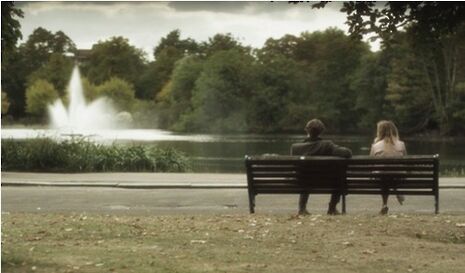Film: London Short Film Festival

The eighth London Short Film Festival (LSFF) ran from the 7th to the 16th January this year, during which over 250 short films were aired at 22 venues throughout London. At the heart of the festival were nineteen themed screenings of new short films, with categories ranging from experimental and abstract to comedy and documentary. Also in the programme was a wealth of guest screenings, live events, retrospectives, installations and Q&A sessions. Interactive workshops ran throughout the festival, as did a roster of industry events, providing opportunities for networking and insider information on all aspects of the film industry. With so much on offer I only attempted to get a taste of the festival, and chose to attend two screenings: ‘Fucked Up Love’ and ‘Family Affairs’.
My main qualm with ‘Fucked Up Love’ is that none of the films were especially imaginative in their interpretation of ‘love’, and none of the love shown was particularly ‘fucked up’. There were no transgressive desires or unusual love-objects (cf. the inflatable doll in Lars and the Real Girl), and none of the films interpreted ‘love’ in a broader, non-romantic sense: platonic love, say, or in the form of a ruinously obsessive passion or hobby.
That said, some of the films were real gems. In the Meadow (dir. Dave Alexander Smith) was the most quirky and uncomfortable: in a production reminiscent of Michael Haneke’s works, a pair of mime artists humiliates and assaults a couple, apparently wantonly. The film eventually suggests that this is punishment for the man’s infidelity to his wife, when it is revealed at the close that his companion was in fact his mistress. Unexpected and unsettling to the end, the film, satisfyingly, hints rather than tells. Alexander Smith is one to watch out for.
In Between Asking (directed by Lucy Luscombe) was also notable: two early-twenty-somethings are sat on a bench the morning after the night before. Whilst the audience is initially confused about their identities and their relation to each other, the film discreetly builds up details about their characters and their under-achievements. Pleasantly understated and awkward, the production was perhaps most impressive for the fact that it starred and was written as well as directed by 23-year-old Lucy Luscombe.
‘Family Affairs’ screened the following day and presented eight shorts about family dynamics in various permutations, was superb. Marigolds (directed by Stephanie Zari), another film which displayed the strong influence of Haneke, stood out in particular. The production centres on a mother’s sexual desire for her son and the lust, jealousy and self-disgust that a visit from him and his beautiful girlfriend induces. Pink marigold gloves recur throughout the film, culminating in resonant symbolism in the final scene where, marigolds on, the mother masturbates on the same bed that she heard her son having sex on the night before, and which she was in the middle of frantically cleaning. The gloves, acting as a physical barrier against the ‘contagion’ of sex, paradoxically provide a safe means by which the mother is able to satisfy her own incestuous desires.
The LSFF seems to be a relatively well-kept secret, yet with such a diverse and vast programme it should be one of the cultural highlights of the year. For anyone who is keen to witness emerging or underground talent, or for anyone who believes that there’s more to cinema than Hollywood, the London Short Film Festival is an absolute must.
 News / Colleges charge different rents for the same Castle Street accommodation2 March 2026
News / Colleges charge different rents for the same Castle Street accommodation2 March 2026 News / King’s hosts open iftar for Ramadan3 March 2026
News / King’s hosts open iftar for Ramadan3 March 2026 News / Angela Merkel among Cambridge honorary degree nominees27 February 2026
News / Angela Merkel among Cambridge honorary degree nominees27 February 2026 Theatre / Lunatics and leisure centres 4 March 2026
Theatre / Lunatics and leisure centres 4 March 2026 News / News in Brief: waterworks, wine woes, and workplace wins 1 March 2026
News / News in Brief: waterworks, wine woes, and workplace wins 1 March 2026







